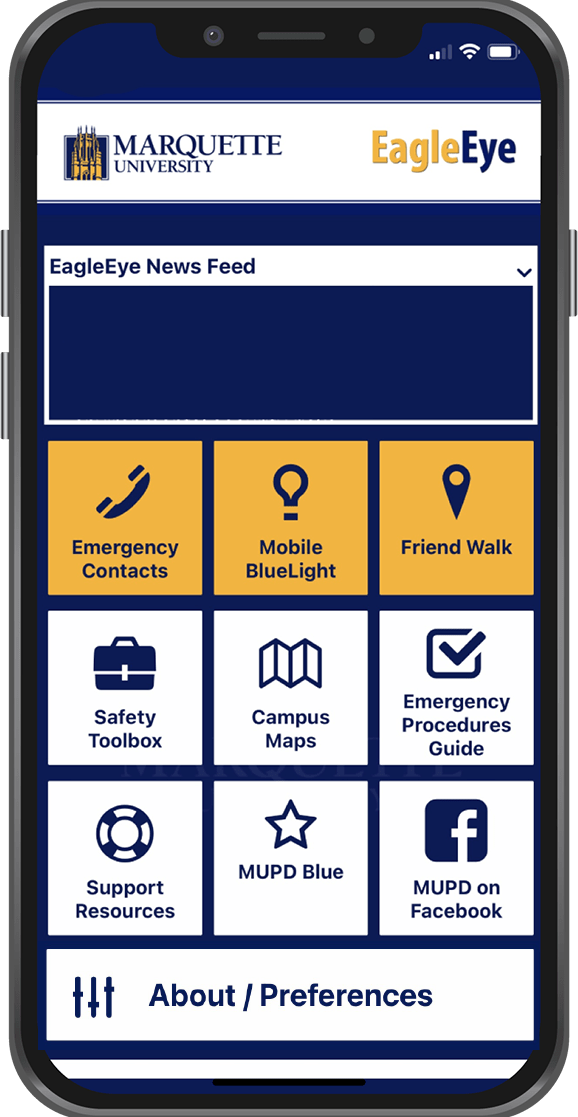Marquette University Police Department officers are trained to help obtain medical assistance, counseling and related support for victims including contacting a confidential university victim advocate.
At the request of the victim, the Marquette University Police Department can contact the Milwaukee Police Department when it receives a report of criminal sexual misconduct, including sexual assault. The Sensitive Crimes Unit of Milwaukee Police Department may follow up on such reports.
Confidential assistance and referrals are available if reported to the Sexual Assault Treatment Center (SATC), victim advocates in Advocacy Services, ordained members of the clergy in Campus Ministry, counselors in the Counseling Center, and doctors, registered nurses and physician assistants in the Marquette University Medical Clinic. Other confidential resources are listed here.
Sexual Violence Prevention Programs and Support Services
To help foster a safe and responsive environment, the university provides a wide range of prevention programming, education, resources and support services relating to sexual violence, which includes sexual assault, relationship violence and stalking.
Through a variety of educational programming efforts, students receive information that increases awareness about sexual violence issues and challenges beliefs to support risk reduction and prevention of sexual violence. The programming curriculum focuses on encouraging and supporting students in taking an active role in defining and preventing sexual violence.
Bystander intervention is encouraged through safe and positive intervention techniques and by empowering third-party intervention and prevention such as calling for help, identifying allies and/or creating distractions. Bystander intervention training highlights the need for those who intervene to ensure their own safety in the techniques they choose, and motivates them to intervene as stakeholders in the safety of the community. Through peer-to-peer training programs, students review situations where sexual assault can likely occur and develop and discuss strategies they can use to support each other.
Marquette University provides prevention and awareness campaigns for students, faculty and staff throughout the year.
Marquette University makes available confidential victim advocates to provide support and assistance to those affected by sexual violence. The advocates can be contacted at (414) 288-5244.
Services the advocates can provide include:
- Referrals to university and community services
- Assistance with obtaining a university no contact order
- Assistance with housing, academic and other related matters or
- Information about reporting
- Escorts to all necessary court proceedings
- Escorts through the process of obtaining a court-issued restraining order
- Assistance with creating a safe environment
Wisconsin Sex Offender Registry Information
The Sex Offender Registration and Community Notification Law (beginning June 1, 1997, Wisconsin Act 440) provides the public with automated access to information about offenders, who are required to register with the Department of Corrections. Registration is a way to monitor and track an offender’s whereabouts, thereby providing access to information for law enforcement agencies, victims, public/private organizations and the general public. It is intended to promote public safety and help detect and prevent crime. Access to the registry is provided by the Department of Corrections through the Sex Offender Registry System.
For information about the Wisconsin Sex Offender Registry, go to the Wisconsin Department of Corrections website.
To contact the Wisconsin Sex Offender Registry, call (800) 398-2403



